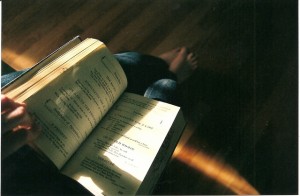– Percy Parry
‘Poetry is plucking at the heartstrings, and making music with them.’-Dennis Gabor
Sadly, today poets face a lot of problems while publishing their book. While other kinds of books (i.e. fiction and non fiction books and novels) have blossomed, poetry has remained right where it had been. Poetry has never seen the type of success that fiction or non fiction books have, but it has still stood strong with a devoted number of fans who love to spend their time listening to a poet recite his poem, and maybe even join classes on how to write good poetry.
Just as other writers and novelists have shifted from publishing to self-publishing, poets have tried hard to do the same. Traditional publishers are sometimes reluctant to publish poems. There may be a decent number of people out there who love poetry, but they are scattered and reaching them is difficult, thus lowering the overall success rate of a book of poems. Hence their reluctance.

Poet Susie DeFord self-published her eBook of poetry, Dogs of Brooklyn, after years of trying to get it published through a traditional publisher. In an interview to Galleycat she says, “I paid to submit to first book contests for almost two years, so I lost money and time trying to do it the old-fashioned way. I suppose that time spent revising/ editing/ swearing/ and feeling rejected made for a better book and some character building, but there are so many cool easy ways to self-publish and get your work out there from blogs to books. I think poets and writers in general should try to make their book the best book possible and not rush into publishing.”
Some self-published writers have seen quite a bit of success, which all the more prompts poets to tag along with the idea of self publishing. Poets are creative individuals who can come up with unusual and exciting ways to publish their poems for their fans and others. Thus they are among the first to adapt to new technologies that can help them showcase their poetry. eBooks thus come into the picture. But even though eBooks are a cheap and effective way to get published, somehow they haven’t gone down well with many poets.
You see, the switch to eBooks is not entirely smooth. eBooks don’t get along with poetry, as well as they do with prose. A critical difference being that prose is like water, which when poured into a vessel takes its shape, in this case that of the eBook. Poetry is one of the most precise and precious of literary forms, thus one of the defining characteristics of poetry are the line breaks. So poetry has a well defined structure, which can easily break if not fitted properly into the vessel (eBook), making it the least adaptable to the growing eBook market. As simple as this problem sounds, it is very difficult to solve it because the same eBook has to work on many different screens and devices on which readers can change the font and size of the text. It is impossible to guarantee that the line will display as the poet had intended. A displaced word, even a comma, can alter a poem’s meaning as surely as skipping a note can change a song.
Of course, traditional poetry publishers have had the same problem with printing the poems on books. Sometimes the poetry’s lines are wider than a book’s trim size, but there’s a way to solve this: when a poetic line continues over the edge of a printed page, it’s indented on the next line. But it has been surprisingly difficult to successfully recreate this indenting in an eBook, to make sure poems keep the integrity of their structure when they appear on screen.
Collins, a former U.S. poet laureate says, “I found that even in a very small font that if the original line is beyond a certain length, they will take the extra word and have it flush left on the screen, so that instead of a three-line stanza you actually have a four-line stanza. And that screws everything up.” When he adjusted the size to large print, his work was changed beyond recognition, a single line turning into three, “which is quite distressing,” he adds.
“I have mixed feelings about poetry and eBooks,” says award-winning poet Edward Hirsch. “I don’t think it’s the best way to read poetry myself and I wouldn’t want to read it on the eBook, but it also seems important to have poetry available wherever possible.”
Because of these added formatting issues of poetry, a lot of poets have had issues when converting their verse to eBooks and with E- readers. Because spacing and breaks are so important, and the viewing and formatting options of eBooks can easily be altered, poets are having a hard time getting their formatting right.
Ira Silverberg, director of literature for the National Endowment for the Arts, told the Washington Post, “Right now, we’re talking about conversion of print files to digital files and the greatest issue is in the poetry community. If you’re working on a Kindle or Nook or Kobo device, and you shoot up a page, you lose the line breaks depending on how you’ve formatted your preferences.”
Poets are working on different ways to get over this major problem. Judging by the level of creativity they have, I’m guessing they’ll come up with a solution to tackle this major milestone.
Percy Parry interns with CinnamonTeal Publishing.